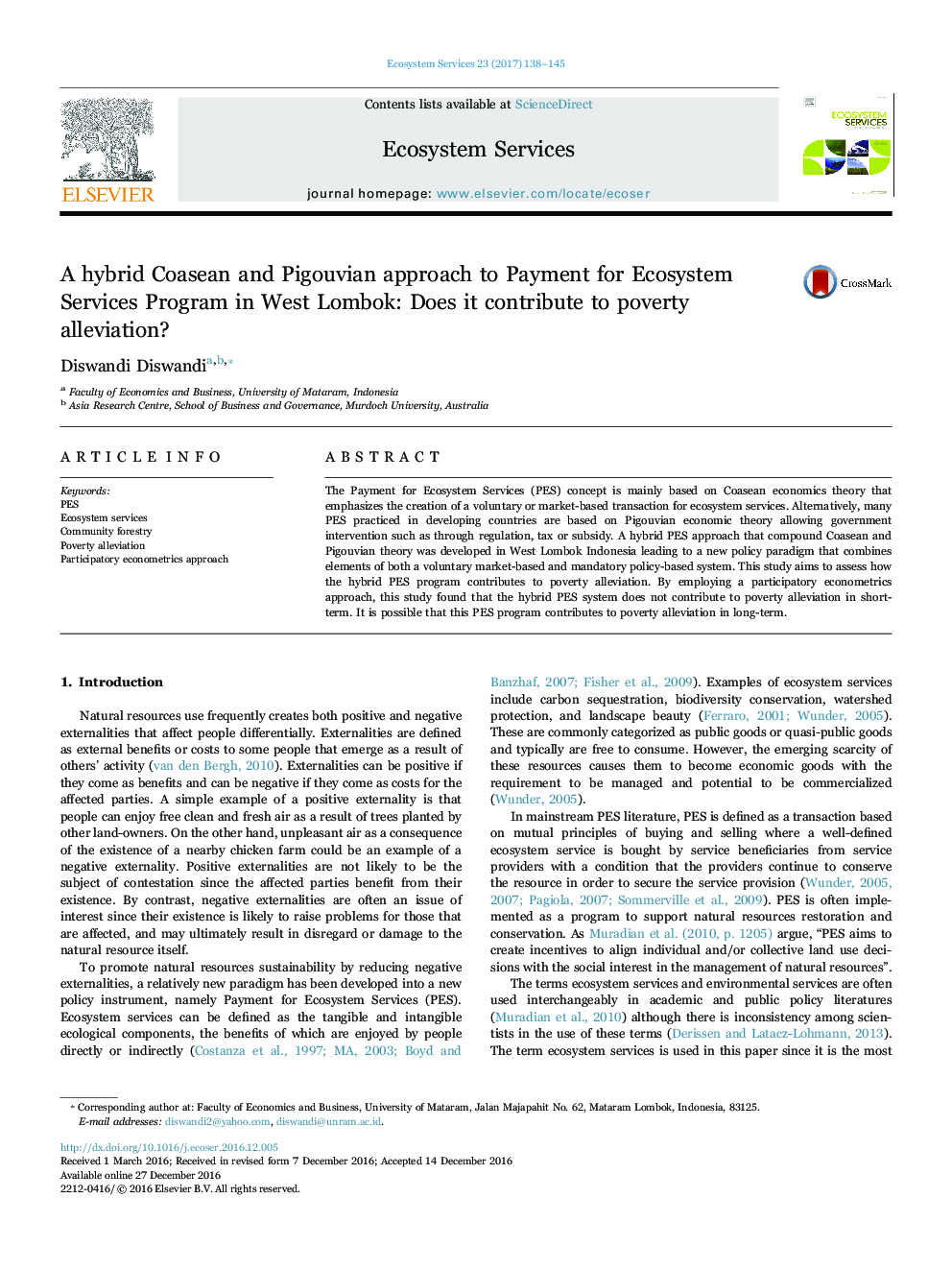| Article ID | Journal | Published Year | Pages | File Type |
|---|---|---|---|---|
| 6463514 | Ecosystem Services | 2017 | 8 Pages |
â¢The PES program in West Lombok is a hybrid PES system that compounds the Coasean and Pigouvian theory.â¢Coasean theory is applied in supply side and Pigouvian theory is applied in demand side.â¢This hybrid PES combines voluntary market-based and mandatory policy-based system.â¢This hybrid PES program does not contribute to poverty alleviation in short term.
The Payment for Ecosystem Services (PES) concept is mainly based on Coasean economics theory that emphasizes the creation of a voluntary or market-based transaction for ecosystem services. Alternatively, many PES practiced in developing countries are based on Pigouvian economic theory allowing government intervention such as through regulation, tax or subsidy. A hybrid PES approach that compound Coasean and Pigouvian theory was developed in West Lombok Indonesia leading to a new policy paradigm that combines elements of both a voluntary market-based and mandatory policy-based system. This study aims to assess how the hybrid PES program contributes to poverty alleviation. By employing a participatory econometrics approach, this study found that the hybrid PES system does not contribute to poverty alleviation in short-term. It is possible that this PES program contributes to poverty alleviation in long-term.
